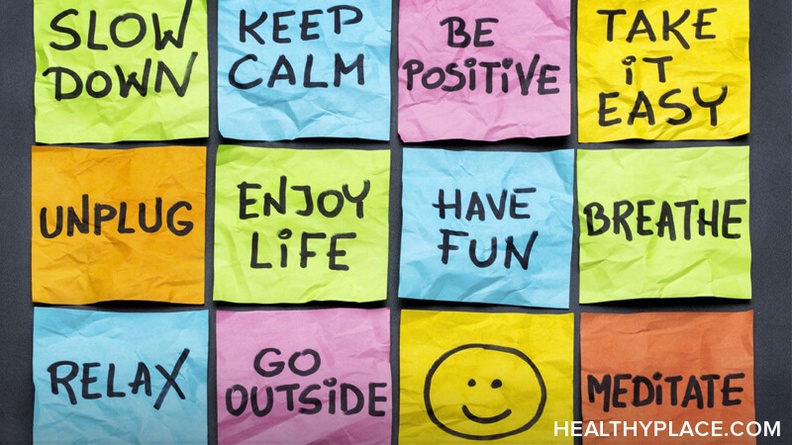The Dangers of Well-Meaning Mental Health Advice

Since my brother was diagnosed with anxiety and depression, all types of people have tried to give him advice on his mental health symptoms. Many of these people have no experience of a mental health diagnosis themselves -- and while they mean well, their mental health advice could actually exacerbate depression and anxiety symptoms if my brother followed it.
Certain psycho-social interventions have been helpful to my brother in complementing the treatment of his mental illness -- but it is important to note that there is no one-size-fits-all treatment. Giving unqualified mental health advice to someone living with a chronic mental illness can be tone-deaf at best, dangerous at worst.
Here are some examples of questionable advice my family has received about managing my brother's anxiety and depression.
Mental Health Advice You Should Refrain from Giving
"Meditation Fixes Anxiety."
In case anyone thinks I'm criticizing meditation here, I love it. I have taken numerous meditation courses, and have even traveled to Northern India to further my practice. In my personal experience, meditation has reduced my anxiety -- but it is not a suitable intervention for my brother.
In my brother's case, sitting with anxious thoughts can cause them to grow exponentially -- interrupting the thoughts through distraction is the technique that works best for him. He can then revisit and examine the thoughts later if needed, with help from his therapist. So, no, meditation will not cure my brother's anxiety -- if anything, it will make it worse.
"Exercise Cures Depression."
Exercise has been a very helpful outlet for my brother since his diagnosis. Regular cardio exercise stabilizes his mood, and weight-bearing exercise has a calming effect on his nervous system. Exercise has certainly not cured his depression or negated the need for medication for depression.
While this mental health advice is well-meaning, it comes across as reductive. Implying that something as complex as clinical depression can be fixed by going to the gym shows a lack of understanding of just how deeply this condition affects a person.
When my brother's fatigue symptoms are bad, he needs to take time out from his exercise routine and prioritize rest -- selling exercise as a magical cure-all for mental illness creates guilt around this.
Expert Mental Health Advice
I wouldn't visit the family of someone living with diabetes and offer advice around what diet he or she should follow to cure the illness. I have little knowledge of this condition, and recognize that advising someone based on my own experiences as a non-diabetic could have potentially harmful consequences.
I would ask that people use the same principles when communicating with families of people with mental illnesses. When it comes to mental health advice, let's leave it to the experts -- by which I mean both trained professionals and those with lived experience of mental illness themselves.
Have you or somebody you support ever gotten unsolicited mental health advice from a well-meaning friend? How did you handle the situation? Share your story in the comments.
APA Reference
Spendlove, N.
(2020, May 25). The Dangers of Well-Meaning Mental Health Advice, HealthyPlace. Retrieved
on 2026, March 4 from https://www.healthyplace.com/blogs/mentalillnessinthefamily/2020/5/the-dangers-of-well-meaning-mental-health-advice
Author: Nicola Spendlove
I think this is a beautiful reminder of everyone's process being unique to them. I also like to think that anxiety isn't necessarily something to "fix", our perception around it and interaction with it can be shifted so it's not a negative. The examples you provide for meditation and exercise are perfect because they are among the most common by far, well-meaning, but not necessarily helpful (or even harmful as you mention). We must keep these kinds of conversations in mind if we want to truly support one another, in the ways that are best for everyone.
Thanks for your comment Lizanne! That's an excellent point about anxiety not necessarily being something we should seek to "fix". One good side effect of the COVID-19 restrictions in my experience has been the normalization of conversations around anxiety. Suddenly people in my social circle are being open about feeling anxious some days and fine other days, and I really hope that this openness can continue and pave the way for people with chronic anxiety to be similarly open.